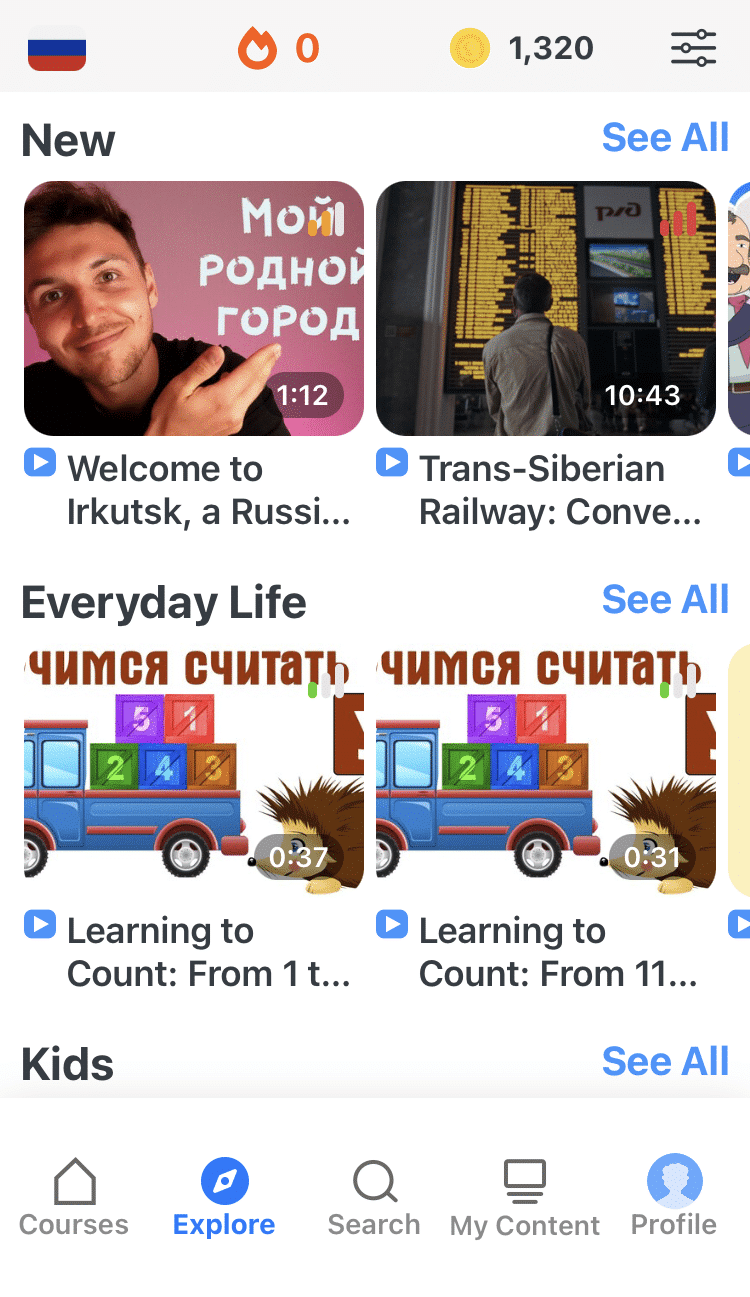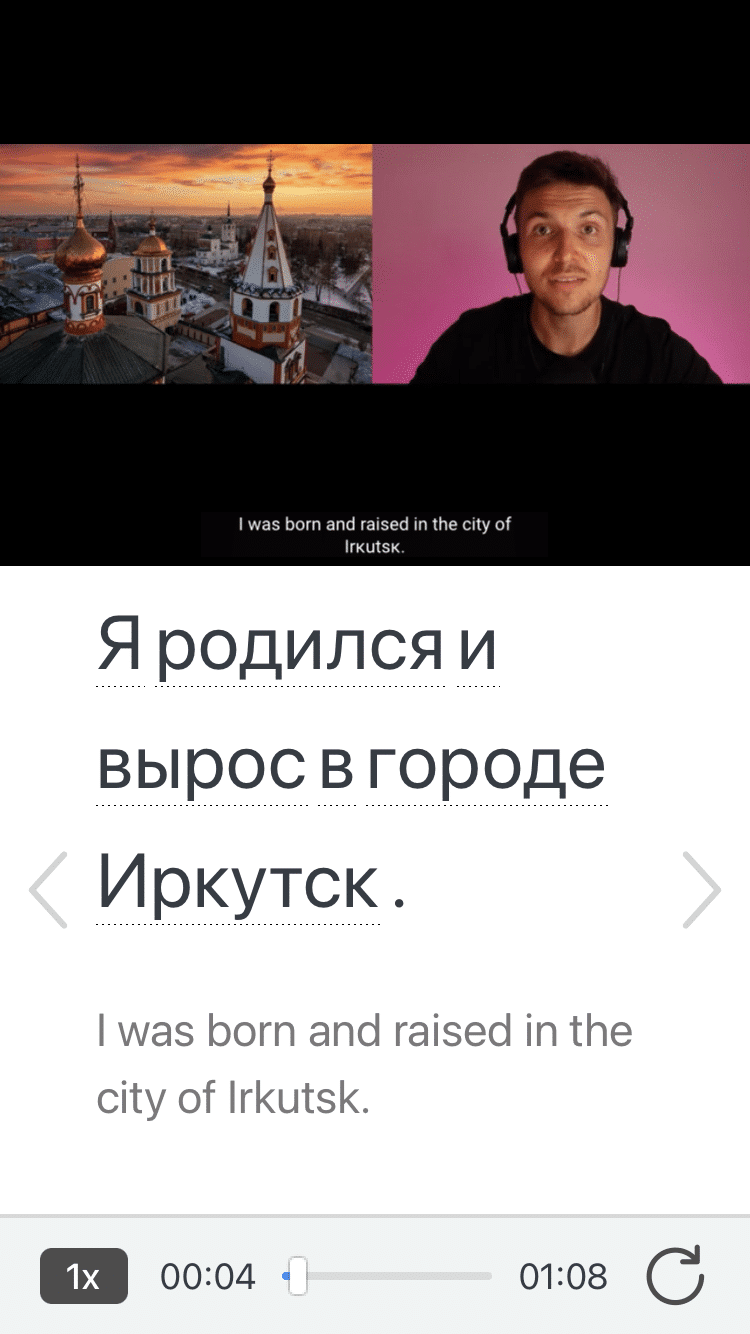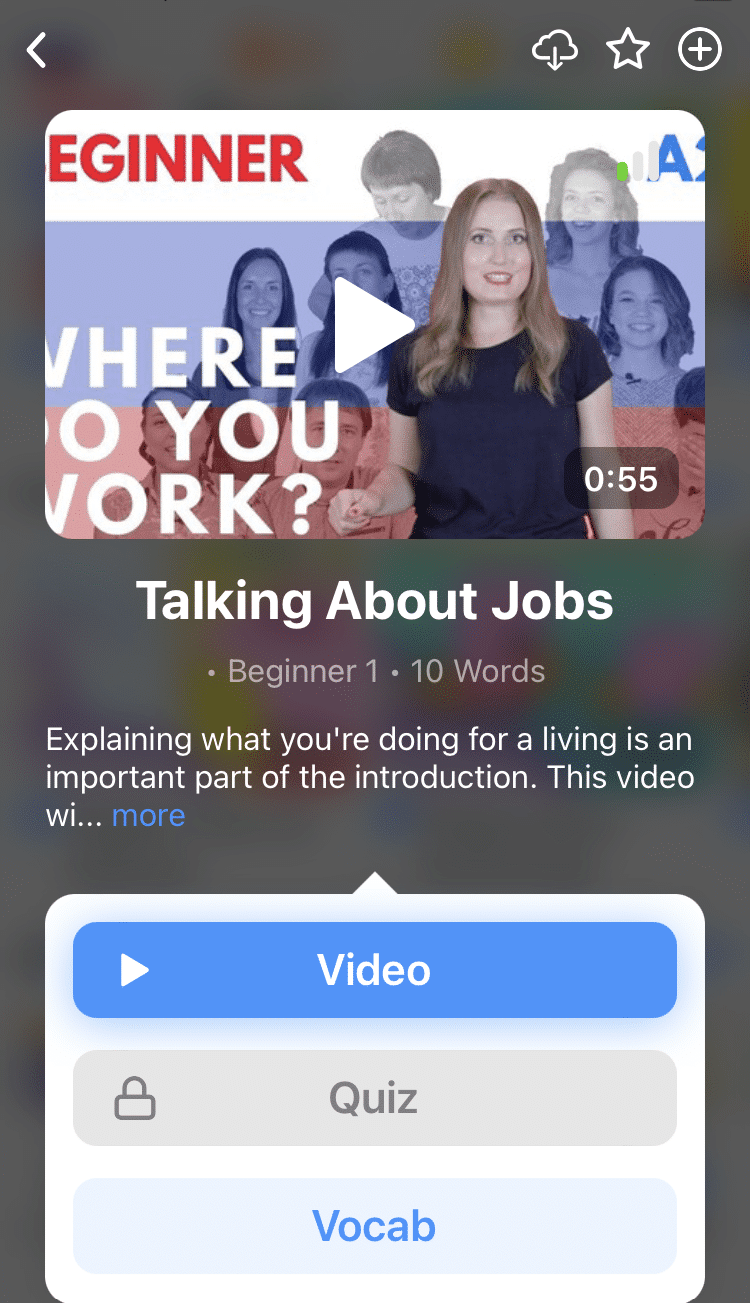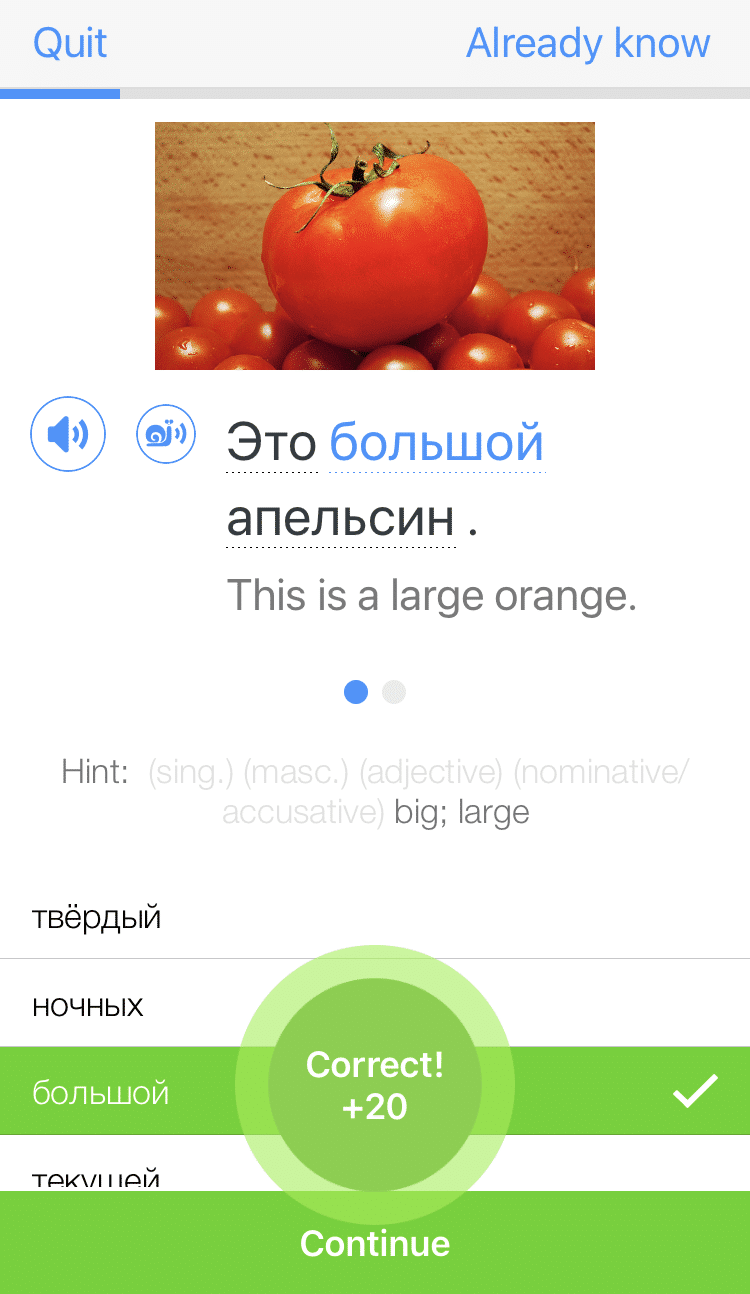
How to Ask Questions in Russian: 12 Question Words
Asking and answering questions is an essential part of learning any foreign language, including Russian.
Luckily, just as in English, Russian has the five “W” question words: who, what, when, where, and why.
Check out these examples of the five “W” question words in action with their pronunciation, plus other common question words and phrases in Russian.
Contents
- Question Words in Russian
- How to Ask Questions in Russian?
- Example Questions in Russian
- Why You Need to Learn Asking Questions in Russian?
- And One More Thing...
Download: This blog post is available as a convenient and portable PDF that you can take anywhere. Click here to get a copy. (Download)
Question Words in Russian
1. Кто? — Who?
The common word in Russian used to ask about people.
For example:
Кто это? — Who is this?
Кто он/она? — Who is he/she?
2. Что? — What?
This word can be used for objects, abstract words, actions, etc.
For example:
Что это? — What is this?
Что ты делаешь? — What are you doing?
3. Когда? — When?
For example:
Когда будешь дома? — When will you be home?
Когда играет Россия? — When does Russia play?
4. Где? — Where?
For example:
Где находится туалет? — Where is the bathroom?
Где ты родился/родилась? — Where were you born?
5. Почему? — Why?
For example:
Почему у меня болит голова? — Why does my head hurt?
Почему русский язык такой сложный? — Why is Russian so hard?
6. Как? — How?
According to my second grade teacher, “how” is not technically one of the “W” question words, even though it ends in “w.”
Regardless, there’s also a “how” equivalent in Russian, one that most Russian learners already know: как? As in, как дела? (how are you?).
And to keep things interesting, Russian also has some other, specialized question words:
7. Сколько? — How much?
For example:
Сколько весит? — How much does it weigh?
Сколько времени? — What time is it?
8. Куда? — Where to?
For example:
Куда идёшь? — Where are you going?
Куда вложить деньги? — Where to invest money?
This question word is not to be confused with где. This Amazing Russian video explains the difference between the two Russian “where”s.
9. Откуда? — Where from?
For example:
Откуда идёшь? — Where are you coming from?
Откуда дует ветер? — From where does the wind blow?
10. Зачем? — What for or why?
The meaning here is different than почему.
For example:
Зачем ты это сделал(а)? — What did you do that for?
Зачем ты учишь русский? — Why are you studying Russian?
This type of question is usually asked with incredulous intonation, as in, “Why on earth would you study Russian?”
11. Чей? — Whose?
For example:
Чей это мобильник? — Whose cell phone is this?
Чей это ребёнок? — Whose child is this?
Чей declines like an adjective and is used to ask “whose (is it)?” You can learn more about possessives in this video:
https://www.youtube.com/watch?v=sgtgksT1qqg
12. Какой? — Which or what kind of?
Like чей, какой declines as an adjective and is used to ask “which (kind)?”
For example:
Какая у тебя собака? — What kind of dog do you have?
Какой фильм ты смотришь? — What movie are you watching?
How to Ask Questions in Russian?
Just as in English, questions in Russian are posed either with or without a question word.
The simplest way to ask a question in Russian is without question words. Just take any phrase or sentence and use question intonation. For those of you who like to geek out on intonation constructions, this means applying IC-3 (yes-no questions).
Unlike English, Russian doesn’t require inversion of the subject and verb to create a question. Rather, the question is created through intonation alone.
For example:
Это дом. — This is a house.
Это дом? — Is this a house?
Ты занят. — You’re busy.
Ты занят? — Are you busy?
And of course, don’t forget the Russian affinity for negation:
Ты не будешь чай. — You won’t have some tea.
Ты не будешь чай? — Won’t you have some tea?
Ready to give it a try? Check out these YouTube videos from learnrussian.org and R for Russian for some good practice:
Example Questions in Russian
You’ve mastered the different question forms and even the various question words. So how can you put them to use?
Here are some key questions that will help Russian learners at every level.
Questions for beginners.
As a beginner, you’ll probably want to focus on questions that help you get basic information, like how much things cost and how to get around.
Here are some examples that you can vary according to what you want to ask.
- Сколько стоит? — How much does it cost?
- Как проехать на Красную Площадь? — How do you get to Red Square?
- Где туалет? — Where’s the bathroom?
- Вы на своих местах? — Are these your seats?
When you get to the ballet and someone is sitting in your seats, don’t be offended, just ask, “Вы на своих местах?” Trying to score a free upgrade at the theater is a long and respected tradition.
- Когда закрывается магазин? — What time does the store close?
- Как добраться до ближайшего метро? — How do I get to the nearest metro station?
- Не могли бы мне помочь с переводом? — Can you help me with the translation?
- У вас есть меню на английском? — Do you have an English menu?
- Где я могу купить билеты на автобус? — Where can I buy bus tickets?
- Как заказать такси? — How do I order a taxi?
Questions for intermediates.
Once you’ve mastered the basics, you can focus on conversational questions and social interactions.
- Как ты себя чувствуешь? — How do you feel?
- Можно взять твою машину? — Could I borrow your car?
- Как ты съездил(а)? — How was your trip?
- Что ты обычно заказываешь в этом кафе? — What do you usually order at this café?
- Сколько лет ты занимаешься изучением русского языка? — How many years have you been studying Russian?
- Где ты проводишь свои выходные? — Where do you spend your weekends?
- Какие твои планы на ближайший отпуск? — What are your plans for the upcoming vacation?
- Можно тебе помочь с чем-то? — Can I help you with something?
- Какие книги ты предпочитаешь читать? — What kind of books do you prefer to read?
Questions for advanced learners.
You’re ready for prime time! Think about questions that will help you understand nuance and detail in educational and business settings. And show off your cultural and linguistic sophistication by posing questions as a native speaker would (for example, by using negation).
- Вы не согласились бы, что…? — Wouldn’t you agree that…?
- Вы не могли бы объяснить? — Could you please explain?
- Не подскажете, как пройти…? — Could you tell me how to get to…?
- Что бы вы порекомендовали для изучения грамматики? — What would you recommend for studying complex grammatical structures?
- Какие трудности вы испытываете при изучении русского языка? — What challenges do you face when studying Russian language?
- Не могли бы вы поделиться вашим опытом…? — Could you share your experience…?
- Как вы оцениваете …? — How do you assess …?
- Как вы применяете…? — How do you apply …?
- В чем, по вашему мнению, основные трудности при …? — In your opinion, what are the main challenges in…?
Why You Need to Learn Asking Questions in Russian?
Let’s face it, when you’re learning Russian, there are a million things to master: grammar, idioms, small talk. So why work on developing your question expertise? Here are two good reasons.
- Questions are a key way to get information. As young children, we asked questions of our parents all day long. Why? There was a big, unknown world out there and we were trying to understand it.
There’s plenty you want to be able to understand (i.e., ask about) in Russian too. As a tourist, you need to be able to ask how to get somewhere (and how to find the restroom). If you’re a guest in a Russian speaker’s home, you’ll want to be able to ask what food is being served and engage with your host. And if you’re studying in Russia or doing an immersion program, you’ll need to be able to ask about your assignments and get clarification in class.
- Questions are the keys to conversation. A conversation without any questions is going to be pretty one-sided. And probably over pretty quickly. So to maintain an actual conversation with a Russian speaker, you need to be able to do more than just nod and say “Да, да” (yes, yes). You’ll want to ask appropriate questions to move the conversation along, including relevant follow-up questions.
Conversation also requires responding to your companion’s questions appropriately. Which means you need to recognize a question when it’s asked. So questions need to be part of every language learner’s repertoire.
Now you’re well-equipped with the who, what, when, where, why (and more!) of Russian questions.
So go forth, and ask away!
Download: This blog post is available as a convenient and portable PDF that you can take anywhere. Click here to get a copy. (Download)
If you love learning Russian and want to immerse yourself with authentic materials from Russia, then I should also tell you more about FluentU.
FluentU naturally and gradually eases you into learning the Russian language and culture. You'll learn real Russian as it's spoken by real Russian people!
FluentU has a very broad range of contemporary videos. Just a quick look will give you an idea of the variety of Russian-language content available on FluentU:
FluentU makes these native Russian videos approachable through interactive transcripts. Tap on any word to look it up instantly.
Access a complete interactive transcript of every video under the Dialogue tab. Easily review words and phrases with audio under Vocab.
All definitions have multiple examples, and they're written for Russian learners like you. Tap to add words you'd like to review to a vocab list.
And FluentU has a learn mode which turns every video into a language learning lesson. You can always swipe left or right to see more examples.
The best part? FluentU keeps track of your vocabulary, and gives you extra practice with difficult words. It'll even remind you when it’s time to review what you’ve learned. You'll have a 100% personalized experience.
Start using the FluentU website on your computer or tablet or, better yet, download the FluentU app from the iTunes or Google Play store. Click here to take advantage of our current sale! (Expires at the end of this month.)
And One More Thing...






